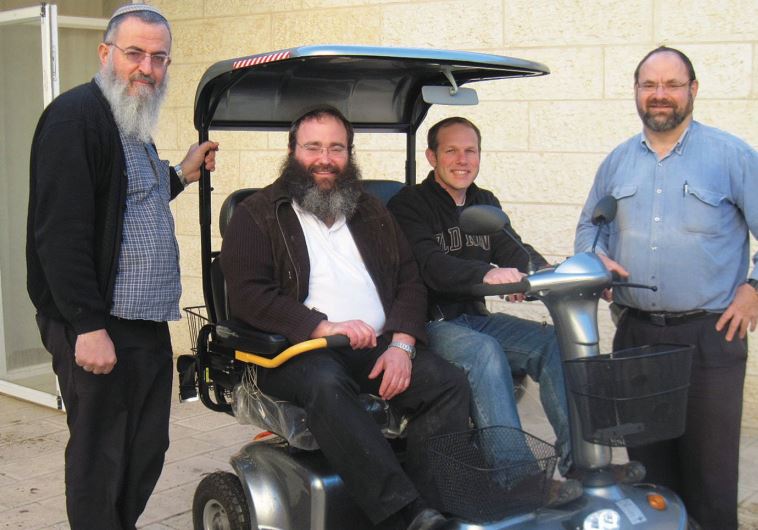Matching modernity and Jewish law
The Zomet Institute develops technology that aims to limit Sabbath desecration and create better lives for people with disabilities.
 Electric scooter modified for Shabbat, with the Zomet’s rabbis and engineers(photo credit: DAVID DOITSCH OF ZOMET)
Electric scooter modified for Shabbat, with the Zomet’s rabbis and engineers(photo credit: DAVID DOITSCH OF ZOMET)